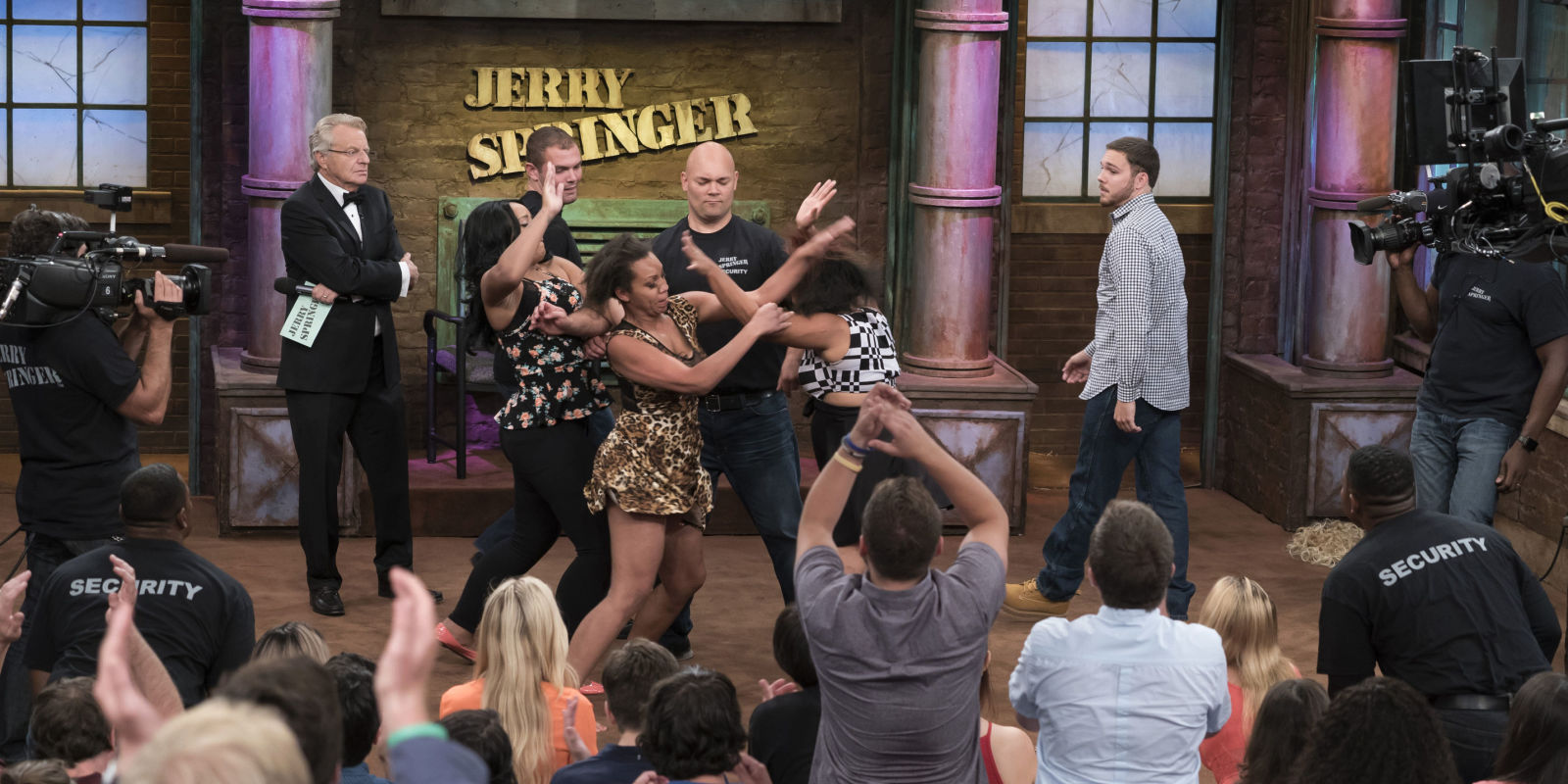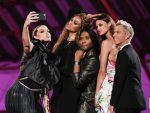Daytime Racism
Shows that make their money by ridiculing black stereotypes have helped worsen race relations and need to be taken off the air.
By Shannon Mondesir, Brooklyn College
Reality television—you either love it or hate it.
When you were young, home sick and in bed while all your friends were at school, there probably wasn’t much you could do that required less energy than what you could muster, so what did you do? Besides sleeping, television was a pretty good option; there isn’t that much energy to be had besides thumbing through the channels to find something entertaining to watch.
There are several popular reality television shows for you to watch that are probably still on if it’s morning,“Jerry Springer” or “Maury,” to be specific. These shows have audiences engaging and having fun, as they watch the wild acts that are occurring on stage, and this type of crude entertainment aids in raising the viewership of the shows. “Jerry Springer” and “Maury” have been on for several years and are basically known for the dramatic reactions to the announcement of whether the guy is the baby daddy is or not. With African Americans most commonly appearing as the guests on their shows, Jerry and Maury make millions from their shows showcasing black coonery.
Perhaps this is putting it bluntly; however, reality shows such as “Jerry Springer” and “Maury” perpetuate the black stereotype, thus keeping African Americans back from proving the stereotype wrong altogether.

Reality television is a guilty pleasure for many, including those who don’t want to admit it. While this genre of television claims to be unscripted and authentic, this can be challenged on many counts. Whether this fact may bother people who enjoy it seems to be irrelevant; unscripted or not, it is an addiction. There are a few shows where this genre may not be damaging at all, but specifically in regard to the reality shows that broadcast African Americans stereotypes, this is incredibly problematic.
The stereotype African Americans hold is extremely negative, as they are seen as lazy, ugly, violent and ghetto. Black culture, despite a few aspects emulated in the cultures of other races, is generally seen as negative. Rap and hip hop, both black oriented musical genres, are accused of exploiting gangs and violence, kinky hair is seen as ugly and general physical characteristics of the black body are ridiculed and have been for centuries. Nonetheless, people such as Maury and Jerry Springer, two white men, have profited off African Americans upholding this stereotype for several years. However, they are not the only shows that should be taken off the air.
Shows such as “Bad Girls Club” and “Love & Hip Hop” are more examples of shows that perpetuate negative stereotypes. There are many African Americans, particularly black women, who tune in to watch new episodes of these shows, where black women fight each other and exploit themselves sexually, feeding into the typecast of angry, overtly sexual black women.
Many would argue that these shows aren’t a big deal at all. “It’s television,” they might say. “It’s entertainment. It’s supposed to be funny.”
Perhaps, but black people have come a long way in terms of slavery, interracial marriages, blatant discrimination and loving our physical features, but there is still work to be done in dispelling the stereotypical image that the black face evokes. Black men are seen as menaces to society, and black women are seen as sexual objects. These stereotypes have yet to be altered in today’s world, and while these television shows continue to air and increase in popularity, it will be harder to get rid of them.
Consider this—the western area of the United States has a lesser population of black people. States such as Wyoming, Montana, Nebraska, Oregon and Washington do not have a large population of African Americans. With a mostly white population, there is a large chance that many of them do not come across black people very often, besides seeing them on TV.
Of course, we are always told not to believe what is on television; however, for someone who has never come across a black person before, it is understandable that the only thing they can base their judgements off are what they see on the tube. Watching these shows like “Flavor of Love” or “Jerry Springer” is exceptionally damaging to the representation of black people.
No white man or woman should be profiting off the exploitation of a black stereotype, nor should a black man or woman achieve fame by acting on these stereotypes. Exercising coonery, for whatever reason, can help you attain fame, and this is true for many black men and women who wish to work in media. By doing this, they are making the journey harder for themselves and their own people.
The bottom line is that, yes, reality television can be addicting. It isn’t anyone’s fault that they find these shows amusing or entertaining to watch, though it should be considered that while you are laughing at a black man yelling obscenities at a pregnant black woman for stating that he is the father of her child, you are unconsciously supporting a damaging stereotype.

















